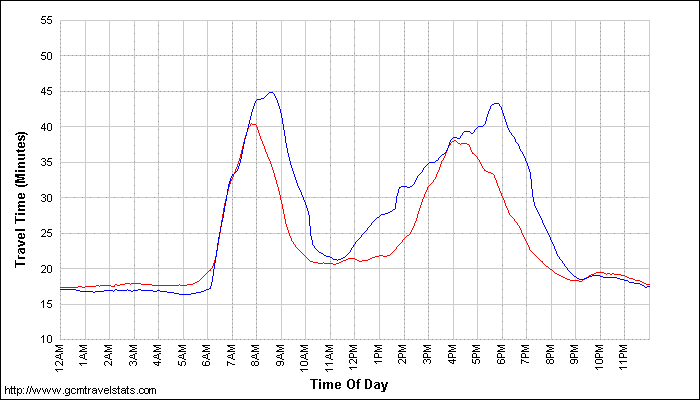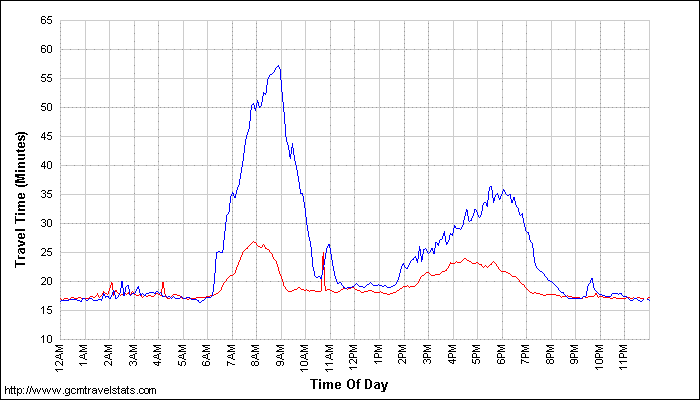Now that Illinois has started the long process of removing our ex-governor's name from tollway signs, this essay from the New York Times' Freakonomics blog extolling the virtues of congestion tolling is worth a read:
[I]t can be hard to convey this because the theory behind tolling is somewhat complex and counterintuitive. This is too bad, because variable tolling is an excellent public policy. Here's why: the basic economic theory is that when you give out something valuable — in this case, road space — for less than its true value, shortages result.
Ultimately, there’s no free lunch; instead of paying with money, you pay with the effort and time needed to acquire the good. Think of Soviet shoppers spending their lives in endless queues to purchase artificially low-priced but exceedingly scarce goods. Then think of Americans who can fulfill nearly any consumerist fantasy quickly but at a monetary cost. Free but congested roads have left us shivering on the streets of Moscow.
(In an odd bit of timing, the concepts of "shortage" and "free goods" will be on my Intro to Microeconomics exam next Thursday.)
Now, living as I do only a 20-minute bus ride from the Chicago Loop, and dreading any time I have to use one of our area's expressways, I think congestion pricing makes perfect sense. Especially when you see, for example, the traffic loads on the Kennedy Expressway during the week. Check this out:

This shows the average travel times from the Circle (downtown Chicago) to O'Hare, a distance of about 27 km. The blue line shows inbound traffic, the red line, outbound. At 40 minutes, the average speed is 40 km/h; normal expressway speeds (90 km/h) get you to O'Hare in under 20 minutes.
Ah, but see this week's chart:

Yes. This week, on average, the trip from O'Hare to downtown took almost an hour during the morning rush period. (For the record, the El takes 35 minutes, you can spend the time reading, the odds of dying are much lower, and it only costs $2.25, as opposed to typical Loop parking lots which cast $28.00.)
Now imagine you had the option of paying $5 to use the reversible lanes, knowing the trip would take 20 minutes. Is 40 minutes worth $5 to you? Forty extra minutes of sleep, 40 minutes with the kids, 40 minutes doing something other than stop-and-go traffic moving slower than a bicycle?